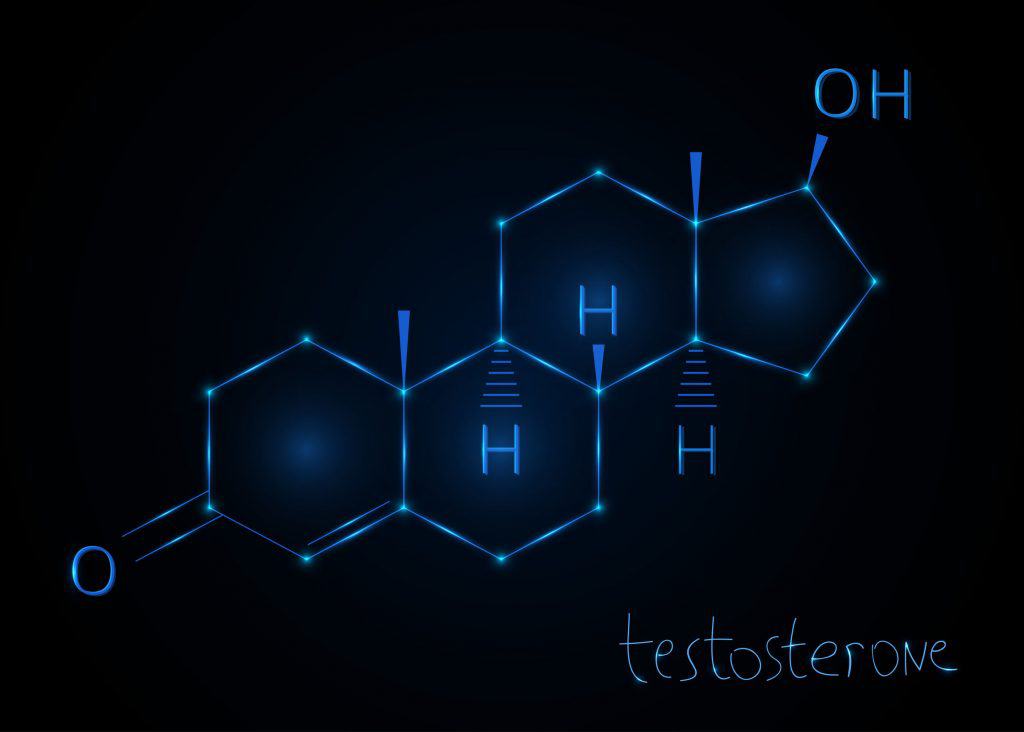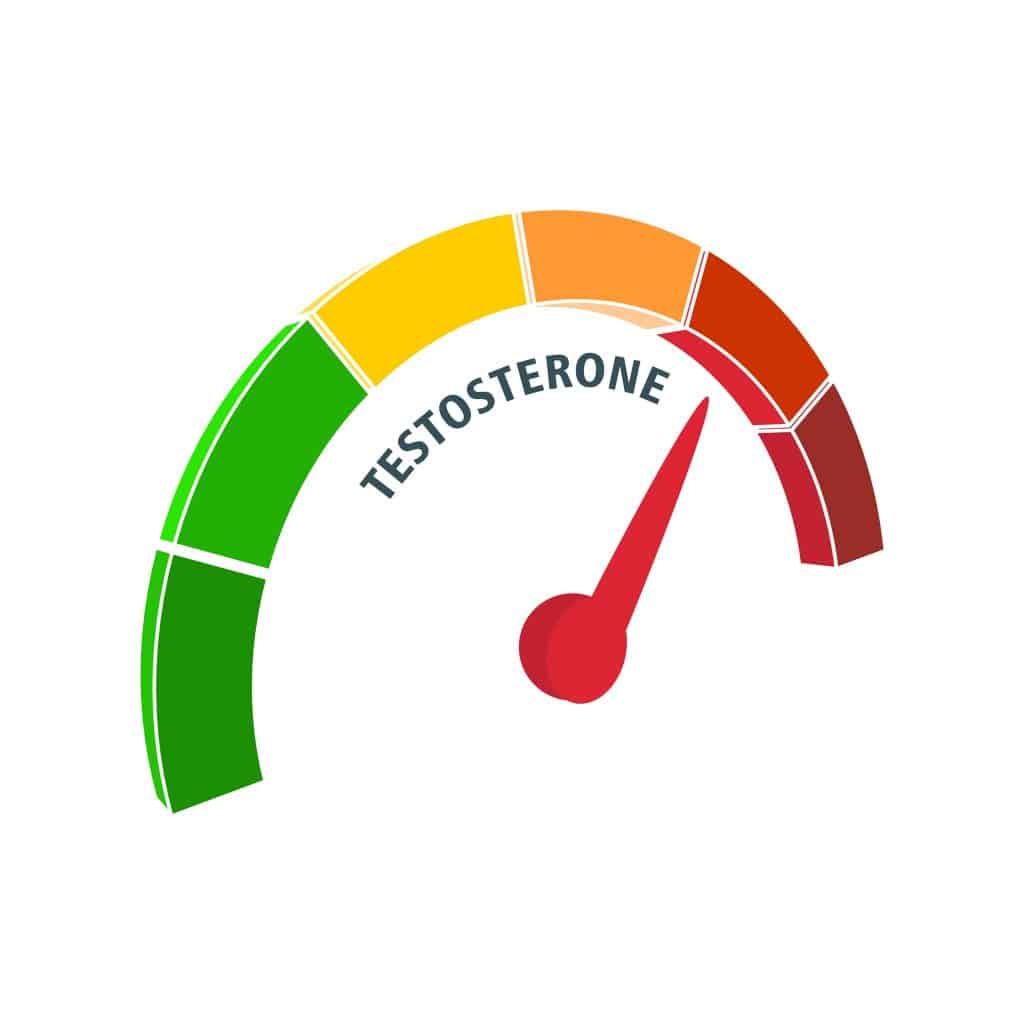Testosterone and High Iron Levels, Causes, Effects, a Guide
Posted by Prescription Hope - See Editorial Guidelines (Last Updated On: Mon Jul 10 2023)
There is a link between testosterone and high iron levels. In some circumstances, it’s important to be aware of how this link works and the effects that it can cause.
So in this article, we’ll give you a comprehensive overview of how testosterone connects with iron levels, other possible connections for testosterone and high iron levels, and related side effects. Here’s a quick summary to help get us started.
Testosterone and High Iron Levels – High iron levels can result from testosterone suppressing hepcidin’s action. Hepcidin is an iron regulatory hormone stimulated by high iron levels. This stimulation helps block excess iron absorption/iron loading. When testosterone blocks this action, it causes high iron levels.
But there is more to the process than just that. So let’s get into some details.

There’s a significant overlap between the side effects of testosterone administration and high iron levels. However, the exact cause of testosterone and high iron levels remains arguable.
Different attributes are believed to contribute to testosterone and high iron levels. But let’s start with a recap on what testosterone is.
What is Testosterone?
To give a little background, testosterone is a hormone produced by the human body, especially by men via the testicles.

It’s this hormone that develops male features, such as body, facial hair, deeper voice, muscle strength, and so on. Above all, men need testosterone to produce sperm.
In general, these testosterone levels reduce with age. In some cases, men may also experience testosterone deficiency syndrome (TD) or low testosterone (Low-T).
These are medical conditions in which testosterone levels are below what the male body needs. It’s often in these cases that men are administrated with testosterone therapy.
Testosterone can be administered through injection, patch, topical gel pump, pill, or implant.
Some side effects of this therapy in men include polycythemia and acne. But these often occur only in supraphysiologic doses.
Apart from this, one severe and common side effect from testosterone includes erythrocytosis, for which high iron levels are believed to be one inducing element.
You can learn more about testosterone in our guide on testosterone replacement therapy.
Testosterone and high Iron levels
The exact mechanism of what happens behind testosterone and how it impacts high iron levels is indefinite. But it’s believed that testosterone results in high iron levels by reducing hepcidin levels or suppressing serum hepcidin.
Some studies explain this suppressed Hepcidin impact through testosterone-induced erythrocytosis. Either way, it’s believed that high iron levels from testosterone come from suppressed hepcidin.
Hepcidin
Hepcidin is an iron regulatory hormone that ensures optimal iron absorption (iron levels) in the body.
The hepcidin hormones work effectively in a manner that means the body will have problems with its iron balance. Meaning, when your body has high iron levels (high iron absorption), hepcidin increases its production to block gastric absorption of iron from the food.
This blockage will prevent you from further increased iron levels, thereby creating an optimal iron balance.
As we mentioned, testosterone is believed to inhibit the effective function of this hormone.
When testosterone inhibits this function, the hepcidin hormone will not be able to block iron absorption when your iron levels are high.
Higher iron levels can lead to “iron overload,” meaning an iron imbalance and causing related symptoms.
Negative impacts of testosterone and high iron levels
The main negative impact of high iron levels (i.e. iron overload) is that it may end up creating a negative impact on how your testosterone works.
Meaning, high iron load disturbs the effective function of testosterone.
This is because high iron levels, in general, cause the male sex hormones to operate incorrectly, which leads to hypogonadism and the eventual reduction of testosterone that your body can naturally produce.
In other words, the effect of high iron levels from testosterone on its own, cause a negative mechanism which prevents testosterone from working effectively.
This also means that the high iron levels work to inhibit overall testosterone production.
These negative mechanisms come from the body’s inability to eliminate the high iron load due to testosterone suppressing hepcidin, which could have otherwise blocked excessive iron absorption.
However, it’s not always testosterone that causes an excess iron load and related effects.

Other factors affecting iron levels
Several other factors can easily increase your iron levels.
Consuming an iron-rich diet, undertaking activities that increase the iron load (such as blood transfusions, iron supplements, or other lifestyle factors), or even taking medications with high iron content can easily increase your iron levels.
Even in such cases, the hepcidin will not be able to create an iron balance. This will thereby again lead to excessive iron load in tissues and blood circulation (i.e. hemochromatosis).
So, if you’re affected by testosterone deficiency syndrome (TD) or Low-T, be mindful of these things.
How testosterone-induced erythrocytosis relates to high iron levels
Erythrocytosis is the most common adverse event associated with testosterone therapy, especially in older men.
Erythrocytosis is a medical condition that results from an increase in red blood cell (RBC) mass, which is also associated with an increased hematocrit (HCT) and hemoglobin concentration.
The mechanism by which this testosterone-induced erythrocytosis occurs is still unknown.
However, according to one study, it’s believed that testosterone-induced erythrocytosis comes from hepcidin suppression and other influences.
Testosterone dose-dependently increases hemoglobin and hematocrit. And also, it’s believed that testosterone increases hematocrit by suppressing the master iron regulatory peptide hepcidin.
To connect the points, testosterone cause erythrocytosis by increasing hematocrit (HCT) through hepcidin suppression, which results in high iron levels (i.e. iron overload).
Therefore, this supports the point that testosterone therapy results in high iron levels through hepcidin suppression.
What to do about testosterone and high iron levels

Earlier, we explained that high iron levels from testosterone can, in turn, inhibit the effectiveness of testosterone, but that doesn’t necessarily mean a low iron level can be a viable solution.
A study was conducted with boys with iron deficiency. The effects of testosterone were observed after consuming iron and vitamin A supplements.
At the end of the study, it was concluded that this iron consumption increased testosterone levels.
As such, supporting the view that iron deficiency does not necessarily have a positive impact on testosterone.
On the other hand, a study on Chinese men indicated a high level of ferritin (ferritin is a blood protein that contains iron) is associated with low levels of free and total testosterone.
So, this again supports the idea that high iron levels do have a negative impact on testosterone.
The point here is that neither high nor low iron levels are a solution for testosterone.
In fact, it’s a much more complex concept to address, and that’s why studies haven’t yet managed to present a solid statement in this regard.
The takeaway from this is that, indeed, testosterone can cause high iron levels, and in turn, high iron levels can also inhibit the effective functioning of testosterone.
So, a solid solution to this condition cannot be easily recommended as a cure-all. This condition requires proper diagnosis and analysis for each individual.
As we always recommend, the best course of action is to consult with your doctor to find the best solution that suits your needs.
In general, the best advice is to achieve and maintain a balance in iron through your diet and lifestyle.

To close
We hope this has provided you with a helpful guide on testosterone and high iron levels. If you have questions regarding your condition or treatment, then consult your doctor.
For more questions regarding your specific condition, always consult your healthcare provider.
If you’re having trouble affording any of the medications you’ve been prescribed, visit our home page to learn more about Prescription Hope’s medication access service, compare the costs of your current prescriptions, and see how we can help obtain your medications at a cheaper price. Fill out an application today and start receiving Brand-Name prescription medications at your doorstep. Call us at 1-877-296-HOPE (4673) to speak to one of our representatives, we’re always happy to see how we can help.

